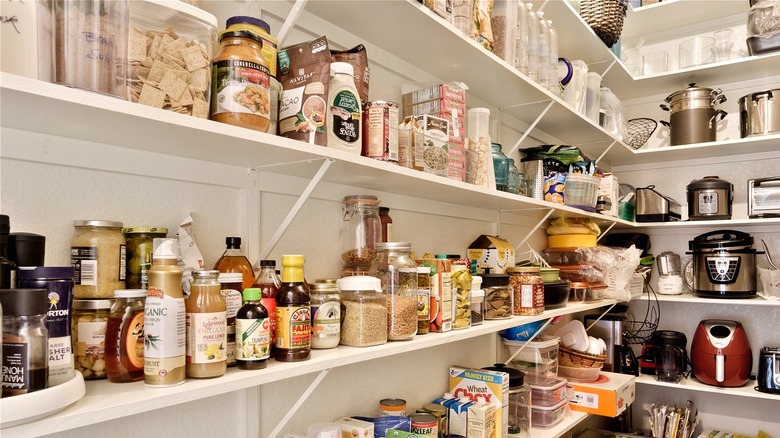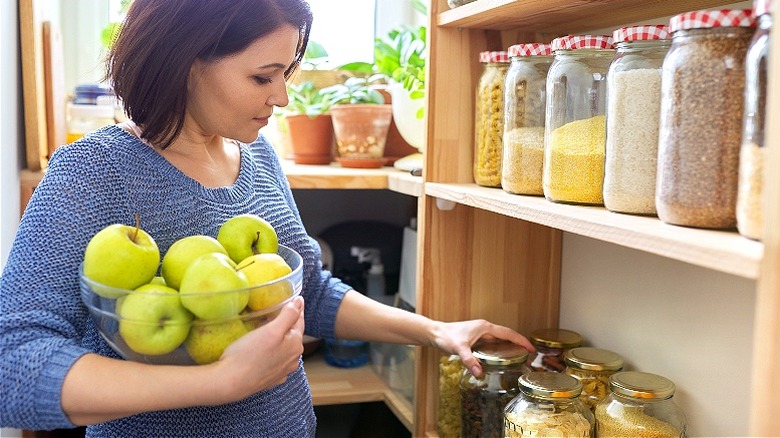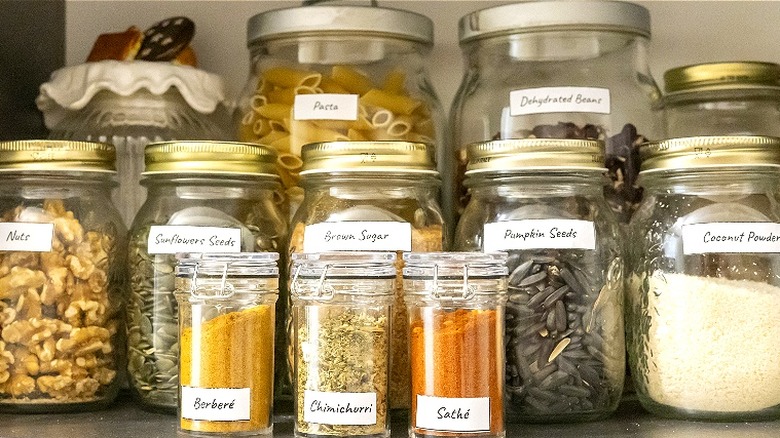How Keeping Your Pantry Well-Stocked Can Save You Money
If you're looking for ways to reduce your spending on food (here's how much of your income you should be spending on groceries, by the way), the answer just might lie with adjusting when and how you shop for groceries. You don't have to eat less to cut into your food budget; you just need to shop smarter. Unless you already keep a fully stocked pantry all the time, one path to an optimized food budget involves directing some of your total food spending to building up the stash of food on your shelves at home. Now, we're not suggesting you build a huge stockpile of food, but rather, that you beef up the supplies on your pantry shelves slowly so you can use your food money more wisely.
Investing in a stocked pantry is a prudent way to avoid finding yourself in a pinch at dinner time without the supplies you need to make a meal. Because when that happens, it's highly likely you'll either end up picking up pricey takeout, dining out, or running to the grocery store to purchase the ingredients at that particular point in time — along with whatever else finds its way into your cart while you're in the store (it's why shopping on an empty stomach can cost you, after all). In other words, you'll probably end up spending more than it would cost to proactively fill your pantry.
Reasons to stock up your kitchen pantry
Keeping your pantry well-stocked can save you money in a number of ways. For starters, it allows you to make the most of grocery sales, coupons, rebates, and other deals to get more for your money, rather than paying full price when you're out of a particular item at home. It also reduces the per-unit cost of meals. If you buy staple pantry items in bulk, and then plan meals around those items, you'll ensure nothing goes to waste.
Further, it reduces the number of trips you make to the grocery store each week (or month), and consequently, your exposure to the sneaky ways grocery stores trick you into spending more money. A well-stocked pantry also helps you avoid spending spur-of-the-moment money on convenient takeout or delivery. Similarly, it keeps you from buying lunch during the week; instead, you can make your own salads, sandwiches, soups, wraps, bento boxes, etc.
Another common food-budget buster is stopping by the convenience store to purchase overpriced snacks when on the road or running errands. As with the lunches, you can instead grab a snack from your pantry before leaving the house. Basically, you can think of building your pantry like having your favorite grocery store mere steps away.
Pantry organization is key
Of course, having a well-stocked pantry is only beneficial if you know what's in it and can find and use the items there before they go stale, as that would truly be a waste of the money you put into your food-budgeting project. That's why organization is key. You need to know what you have on hand so that you can plan meals around those items; specifically, by their best-if-used-by dates.
It's also important to keep track of what's running low in your pantry so you know when it's time to replenish your supply of staple items before they completely run out (and you then run into one of the scenarios mentioned above). You can do this manually, keeping an itemized list perhaps tacked to the inside of your pantry's door, or you could maintain a spreadsheet on your computer and phone. What ultimately matters is that you develop solid pantry-management habits so you can make the most of your well-stocked pantry and actually reap the food savings.


